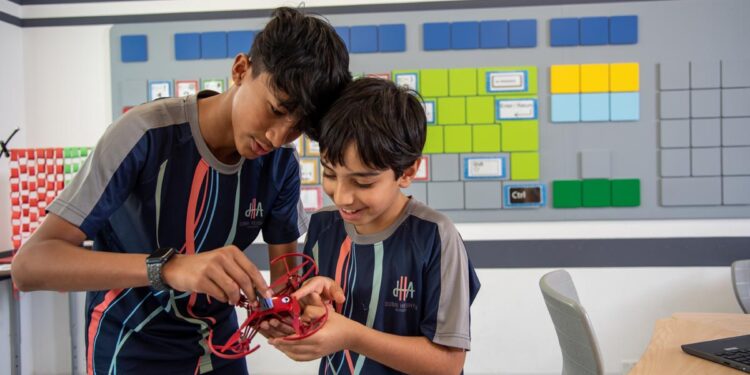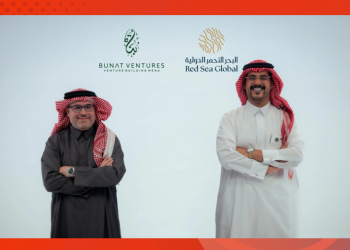MIT Media Lab has formed a partnership with Dubai Heights Academy that’s reshaping how artificial intelligence gets taught in classrooms worldwide. The collaboration, now in its fifth year, represents one of the most ambitious AI education research projects ever undertaken between a US university and an international school.
The partnership puts Dubai Heights Academy students at the center of developing AI curriculum that will eventually reach classrooms around the globe. Students work directly with MIT researchers to test and refine learning materials, making them active participants in shaping the future of AI education rather than passive recipients.
Dubai Heights Academy invested AED 160 million in this research and development project, making it the only school outside the United States involved in MIT’s RAICA (Responsible AI for Computational Action) initiative. The program is part of MIT’s broader RAISE project – Responsible AI for Social Empowerment and Education – which aims to prepare students for an AI-powered society.
The Technical Framework
MIT’s approach goes far beyond basic computer literacy. The RAICA project integrates computational thinking with ethical design principles, using everything from personal robots to hands-on coding projects. Students learn to interact with AI systems using natural language, making the technology accessible without requiring advanced programming skills.
The curriculum evolved significantly after ChatGPT’s launch in 2022. MIT researchers adapted their materials to help students understand how to interact responsibly with large language models and other AI tools that millions of people now use daily.
Professor Cynthia Breazeal from MIT Media Lab leads the Dubai project. She focuses on making AI education more human-centered, emphasizing ethics alongside technical skills. The program uses social robots like JIBO to help younger students develop language skills while building comfortable relationships with AI technology.
Real-World Implementation
The program started with Year 7 students in 2020 and has steadily expanded. MIT provides both curriculum materials and mentors who work directly with Dubai Heights Academy teachers twice weekly during computing classes.
Students don’t just learn about AI – they create real applications for mass market use. The hands-on approach means students build, test, and iterate on actual AI projects while learning ethical considerations around artificial intelligence.
The school’s new secondary facility, opening in September 2025, will significantly expand the program. MIT partnership will grow to serve Years 12 and 13 by 2026, while also extending down to Year 5 students. This creates a comprehensive K-12 AI education pathway that other schools worldwide will eventually adopt.
Broader Context in UAE
This MIT partnership comes as the UAE becomes the first country to mandate AI education across all grade levels. Starting in the 2025-2026 academic year, artificial intelligence will be a required subject in all UAE government schools from kindergarten through Grade 12, reaching approximately 400,000 students.
The national curriculum covers seven core areas: foundational AI concepts, data and algorithms, software usage, ethics, real-world applications, innovation and project design, and policy and community engagement. This comprehensive approach positions the UAE as a global leader in preparing students for an AI-driven economy.
Dubai has attracted over $5 billion in AI-related investments between 2020 and 2024, with the city projected to generate an additional $100 billion from AI-driven economic activity by 2030.
Global Impact and Future Plans
The MIT-Dubai Heights Academy partnership serves as a testing ground for AI education approaches that will scale globally. Student and teacher feedback directly influences how MIT develops curriculum materials for international distribution.
Rob Hitchings, Vice Principal at Dubai Heights Academy, and Hayley Burrows, Primary Computing teacher, emphasized the unique opportunity their students have to influence global AI education development. They described it as “an extraordinary thing for our school to be playing its part in the future of AI in education worldwide.”
The collaboration demonstrates how international partnerships can advance educational innovation. MIT gains real-world testing environments for their curriculum development, while Dubai students receive cutting-edge AI education that prepares them for future careers in artificial intelligence.
Principal Alison Lamb noted that the school aims to create an AI literacy program that can be shared with educational institutions globally, making Dubai Heights Academy a model for AI education implementation worldwide.
The partnership continues expanding as Dubai Heights Academy prepares its new secondary facility, with MIT increasing its on-ground presence in Dubai to support older students and drive innovation in AI education research.













